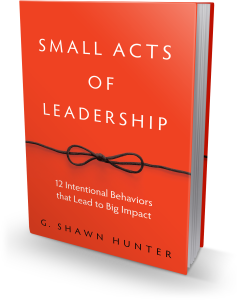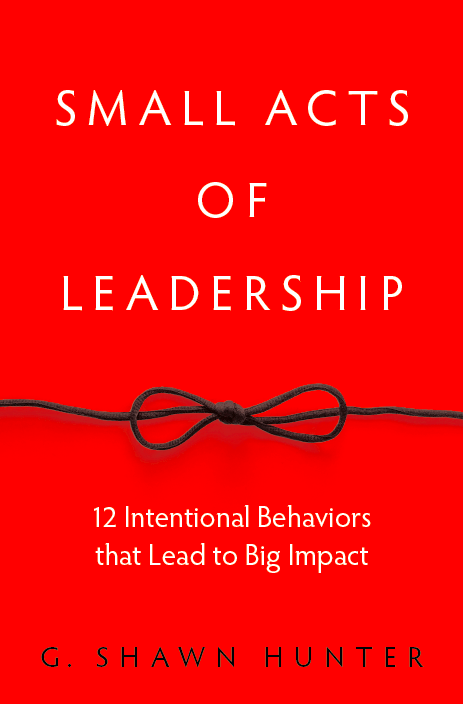What’s Your Habit Trigger?
“In a nutshell, advice is overrated. I can tell you something, and it’s got a limited chance of making its way into your brain’s hippocampus, the region that encodes memory. If I can ask you a question and you generate the answer yourself, the odds increase substantially.” – Michael Bungay Stanier
Recently, I had a habit I was trying to get rid of. Sometimes I was in a bad mood in the morning. It’s a drag. It affects everyone in the house and sets me up for a distracted, frustrated day.
One morning, my wife’s alarm went off at 6:15am, which is fine since it’s not my alarm. It’s her alarm. I don’t use alarms. Don’t be impressed, I just don’t need one. If I want to wake up, at maybe 6:30am, I just tell myself to and I will open my eyes at 6:29am. It’s not a superpower, it’s just a thing I have. I can’t remember the last time I set an alarm.
So when my wife’s alarm goes off at 6:15am, it can’t be for me because, like I said, I don’t set alarms. Then she says, “We should help get Annie ready for the bus.” But I don’t hear we. In my mind I hear, “You have to get up and get Annie ready for the bus.”
So I get annoyed and say, “What would you like me to do?” Which instantly I know is a stupid thing to say becomes it comes from a place of resentment. To which she says, “I don’t want you to do anything. I want you to do whatever you want to do.” She’s smart that way. She doesn’t get baited easily.
Now my day is now only 60 seconds old and already I’m annoyed. I close my eyes and ask myself a new question, what is the most useful thing I could do right now? Then I answer myself, the most useful thing I could do right now is gently wake up Annie, make the coffee, and prepare her breakfast. So that’s what I do.
And suddenly I’m not frustrated, resentful and annoyed, because all of my actions have a different intention. My motivation is to be helpful, not to satisfy what I imagine to be someone else’s expectations. If the goal is to be helpful there’s nothing to be resentful about. By recognizing what triggers my bad mood, and then choosing a different response to that trigger, I changed my outlook and changed my day.
Take a tip from a master of understanding habits, Charles Duhigg. In order to change a habit, we first have to:
Understand the trigger. According to Duhigg there are only 5 types of habit triggers: location, time, emotion, people, and the preceding action. The goal is to be as specific as possible in identifying the trigger. For example, “I get annoyed (emotion) when my boss Sally (person) reviews my project report each week (time).”
Next identify the usual response. So if your usual response is to make a smart-ass comment to Sally and then fall into a funk for the next hour and complain to your colleagues, you should clearly outline and understand, with as much detail as you can imagine, what your habitual response is. Envision what you usually do each week when the trigger occurs.
Finally, define a new behavior. Envision reacting to that trigger in a new way. Again, be specific and imagine something that takes very little time, only a minute or less. Imagine your very first response being different. For example when responding to Sally, you might say “How would you approach this problem?” And then really listen to the answer. Don’t wait for your turn to talk. Listen to what Sally has to say. If you think her suggestion isn’t constructive, instead of reacting, keep your remarks to yourself, then let it go.
Remember you can’t change someone else, that’s up to them, but you can have a new response and develop a new habit whenever you’re around them.
When we change our questions, we change the way we see the world. We change the results. See Question Thinking with Marilee Adams. Message me and I’ll send access to preview the course. It’s awesome.
- ____________________________________________________

Twitter: @gshunter
Say hello: email@gshunter.com
Web: www.shawnhunter.com

 Shawn Hunter is President and Founder of
Shawn Hunter is President and Founder of  Shawn Hunter is President and Founder of
Shawn Hunter is President and Founder of  Shawn Hunter is President and Founder of
Shawn Hunter is President and Founder of  Shawn Hunter is President and Founder of
Shawn Hunter is President and Founder of 
 We have dreams and aspirations, whatever they may be. And that’s good. But the strange thing is, the more idealized our dreams are, the more unlikely and demotivating they become.
We have dreams and aspirations, whatever they may be. And that’s good. But the strange thing is, the more idealized our dreams are, the more unlikely and demotivating they become. Shawn Hunter is President and Founder of
Shawn Hunter is President and Founder of 
 Shawn Hunter is President and Founder of
Shawn Hunter is President and Founder of